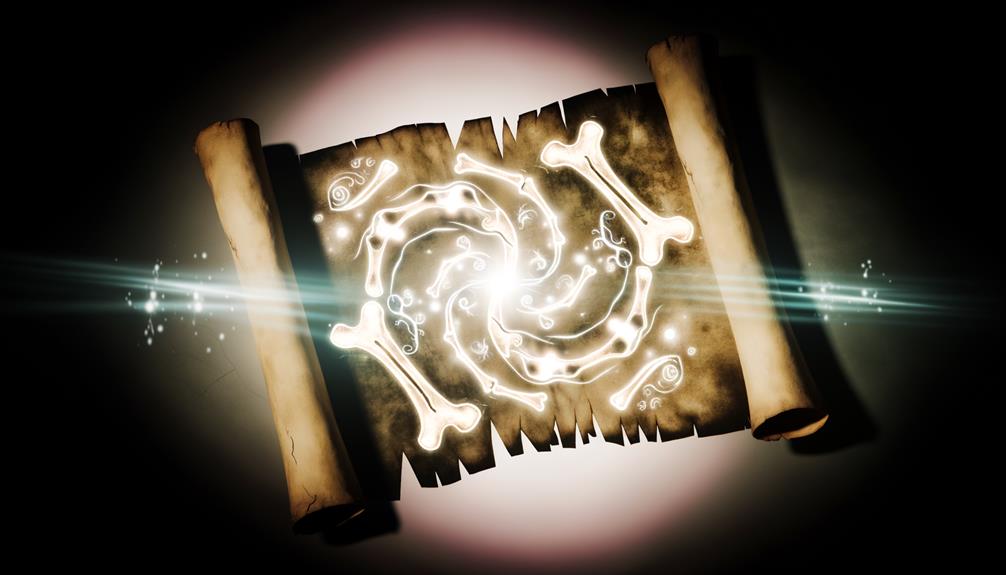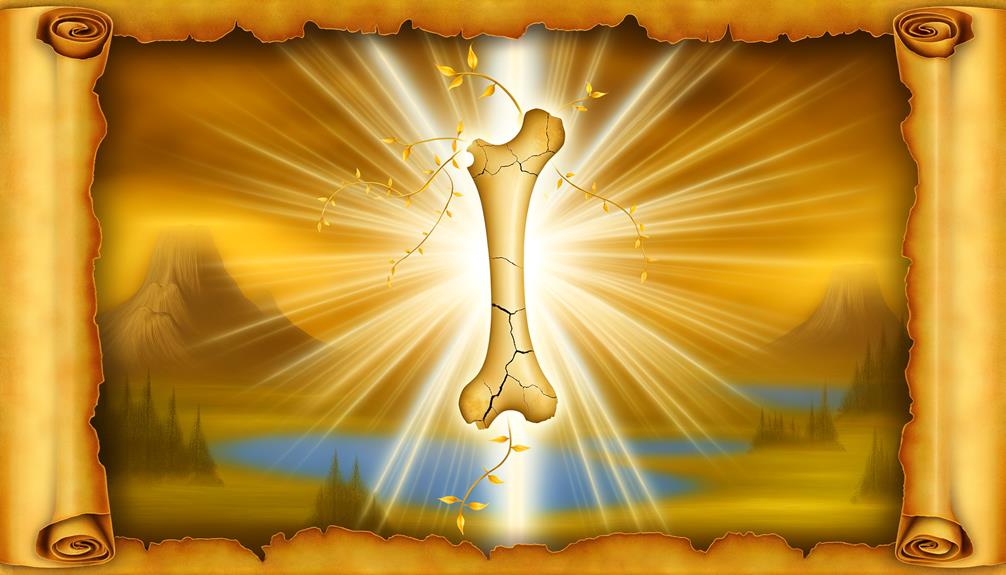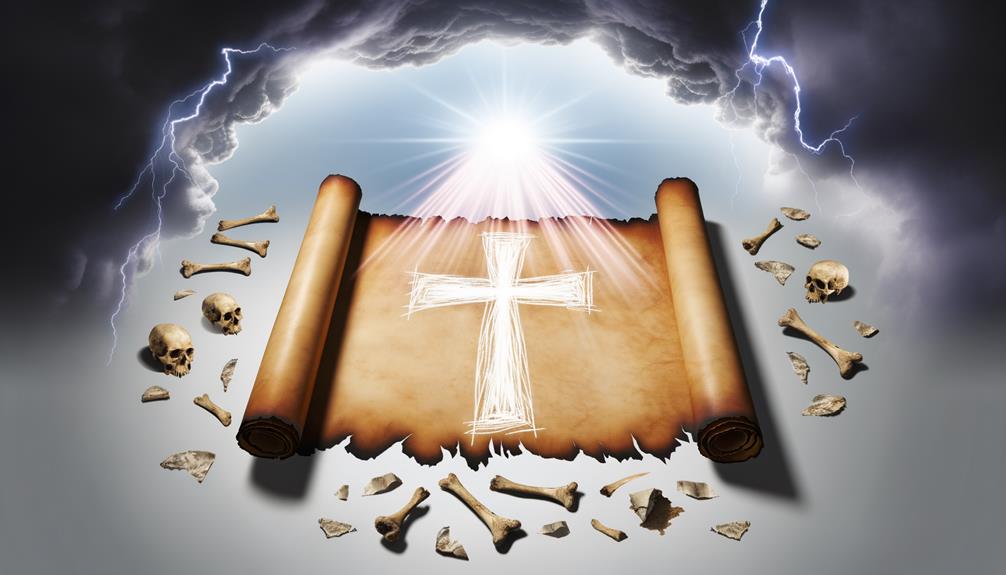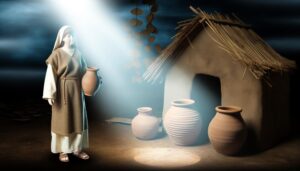Meaning of Broken Bones in Bible: Symbol of Suffering
In the Bible, broken bones often signify profound spiritual distress and divine chastisement, as seen in Psalm 51:8, where King David’s plea represents a yearning for restoration. It also reflects collective suffering, exemplified by Jeremiah in Lamentations 3:4.
Scripturally, broken bones highlight human frailty and the need for divine grace (Psalm 103:14). They symbolize a state of brokenness that invites healing and reconciliation with God, aligning with the idea that God’s discipline, while painful, is ultimately redemptive (Hebrews 12:6).
These themes of vulnerability and restoration invite a deeper understanding of divine intervention and spiritual renewal in biblical narratives.

Meaning of Broken Bones in the Bible: Symbolism, Healing, and Restoration
| Aspect | Details |
|---|---|
| Phrase | Broken Bones |
| Biblical Meaning | Symbol of sorrow, repentance, discipline, and inner brokenness |
| Key Scripture | Psalm 51:8 – “Let the bones you have crushed rejoice” |
| Spiritual Symbolism | Represents the emotional and spiritual pain from sin or correction |
| Healing Insight | God restores what is broken, turning suffering into rejoicing |
| Prophetic Connection | Points to renewal and divine healing of the soul |
| Faith Insight | Brokenness leads to humility, repentance, and deeper dependence on God |
Symbolism of Broken Bones

In biblical literature, broken bones often symbolize a state of profound distress or divine chastisement, reflecting both physical and spiritual brokenness. This imagery is poignantly illustrated in Psalm 51:8, where David pleads, ‘Let the bones you have crushed rejoice.’ Historically, this represents a plea for restoration and forgiveness amid the psalmist’s remorse.
Additionally, the metaphor extends to a communal level in Lamentations 3:4, where the prophet Jeremiah laments, ‘He has broken my bones,’ expressing the collective suffering of Israel under divine judgment.
These references underscore a deeper theological context where broken bones signify a profound need for healing and reconciliation with God, serving as a vivid representation of human frailty and the pursuit of divine grace.
God’s Discipline and Brokenness

God’s discipline, manifesting through the metaphor of brokenness, serves as a profound mechanism for spiritual correction and growth, as illustrated in Hebrews 12:6, ‘For the Lord disciplines the one he loves, and chastises every son whom he receives.’
This verse encapsulates the historical and theological context of divine discipline, where brokenness is not merely punitive but redemptive.
In the Old Scriptures, figures like King David experienced brokenness as a pathway to repentance and restoration (Psalm 51:8).
The notion of broken bones symbolizes a deeper spiritual fracture, necessitating divine intervention for healing and renewal.
Scripturally, brokenness under God’s discipline aims to refine and purify, fostering a deeper, more resilient faith in believers.
Human Frailty in Scripture

The pervasive theme of human frailty in Scripture underscores the inherent vulnerability and dependence of humanity on divine strength and grace.
This theme is vividly portrayed through various biblical narratives, highlighting the transient nature of human life and the need for God’s sustaining power. For instance, Psalm 103:14 reminds us, ‘for he knows how we are formed, he remembers that we are dust.’
To evoke deeper reflection, consider:
- Moses’ Reluctance: Despite his divine calling, Moses expressed his inadequacies (Exodus 4:10).
- David’s Contrition: David’s brokenness over sin is evident in Psalm 51, where he pleads for mercy.
- Peter’s Denial: Peter’s failure to stand firm (Luke 22:61-62) exemplifies human frailty.
These accounts illustrate that recognizing our weaknesses is essential to understanding our need for God’s intervention.
Spiritual Renewal and Healing

Drawing from the rich tapestry of biblical narratives, the concept of spiritual renewal and healing emerges as a profound evidence of God’s redemptive power and unwavering commitment to restore broken lives.
Psalm 51:8 poignantly articulates, ‘Let the bones you have crushed rejoice,’ symbolizing the transformative process where divine intervention turns suffering into joy.
Historically, the healing of broken bones parallels the restoration of Israel, as seen in Ezekiel 37’s vision of dry bones coming to life. This imagery underscores God’s promise to breathe new life into a spiritually desolate people.
Scripturally, Jesus’ healing miracles (e.g., Matthew 9:6) embody this divine restoration, illustrating that true healing transcends physical mending, reaching into the depths of spiritual and communal renewal.
Redemption Through Suffering

In exploring the redemptive potential inherent in suffering, one finds that biblical narratives consistently illustrate how affliction serves as a conduit for profound spiritual transformation and divine purpose. Theologically, suffering often precedes redemption, as seen in:
- Joseph’s imprisonment – Genesis 50:20 emphasizes that what was meant for evil, God used for good.
- Job’s trials – Job 42:10 depicts restoration and a deeper understanding of God’s sovereignty.
- Christ’s crucifixion – Isaiah 53:5 highlights that by His wounds, we are healed.
Historically, these stories reflect a pattern where brokenness leads to restoration, aligning with the overarching biblical theme of redemption.
Scripturally, suffering is not an end but a transformative journey, revealing divine presence and purpose in human frailty.
Conclusion
In theological discourse, broken bones serve as profound symbols of divine discipline, human frailty, and the potential for spiritual renewal.
Scriptural references, such as Psalm 51:8, underscore the transformative power of suffering, aligning with historical interpretations of redemptive suffering.
This symbolic framework invites believers to embrace brokenness as a path to divine healing and restoration, akin to a spiritual ‘reset button.’
Consequently, the motif of broken bones encapsulates a dynamic interplay between frailty, discipline, and ultimate redemption.






